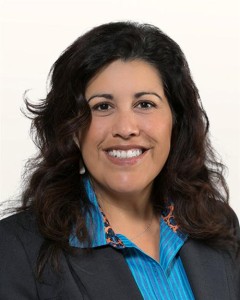Debate Heating Up Over Future of Five Oakland Public Schools – Superintendent Walks Out of Board Meeting
Feb 14, 2015
Posted in Education/Schools/Youth, Equal Rights/Equity, Labor, Responsive Government
By Ken A. Epstein
A disagreement has broken out between Supt. Antwan Wilson and the majority on the Oakland Board of Education over the fate of five flatland public schools and the meaning of the policy governing the quality school improvement process that the superintendent is implementing.
Near midnight at the end of a tumultuous seven-hour school board meeting on Wednesday, the board voted 4-3 on an amendment to administrative regulations, affirming that the board would have the right to vote on the final proposals on what will happen to Fremont, Castlemont and McClymonds High schools, along with Frick Middle and Brookfield Elementary schools.
The regulations will provide guidelines on how the district administration will move ahead to select the proposals that will totally transform these schools. The schools have been encouraged to submit proposals, as have had charter schools and other outside organizations.
Though several board members argued that the amendment was unnecessary since its substance had already been
incorporated in the updated regulations, the motion passed with the support of Nina Senn, Shanthi Gonzales, Roseann Torres and Aimee Eng.
Opposed were Jumoke Hinton, Jody London and Board President James Harris.
Senn, the maker of the motion, said, “We’re all elected to represent ours constituents. Obviously from all the different speakers (at the board meeting), there’s a lot of attention and focus on this work. So this is something that was important to clarify.”
Shanthi Gonzales agreed. “There was a lot of confusion about it. (There) was a missing paragraph from the admin. regs. that was circulated quite widely. It seemed very important to reconfirm that this was everybody’s understanding.”

The problem was that the policy said one thing and the draft administrative regulations said another thing, Gonzales said. “If we actually changed the words in the admin regs, then this is not necessary. But if we have not, then it is necessary.”
Responding at length, Supt Wilson said, “I don’t have any problem with the board voting. But I will not be disrespected in Oakland…. For me its less about the motion – it’s more about the discourse. It’s more about the way it feels. It feels disrespectful.”
Before coming to Oakland, Supt. Wilson read the district policies, which give him the power to do “what I deem necessary,” he said.
He said he is basing his decisions on policies that were passed by the board of education in 2013 and 2014, and now people are acting surprised by what he is doing. People are saying, “Now we can’t trust you,” he said.
However, he said he is willing to be open and take feedback. “ I don’t see this as something (where) I’m drawing lines in the sand.”
After the motion passed, the superintendent stood up without saying a word and walked out of the meeting.

Asked why Supt. Wilson left the meeting, district spokesperson Troy Flint said, “The superintendent wants everyone’s time to be respected. That’s not happening when redundant motions do something that has already been accomplished and enshrined.”
Flint was asked to specify who was being disrespectful: teachers who came to the meeting demanding a new union contract; students who are demanding to have a voice in the transformation of their schools; community members opposed to their schools becoming charter schools; or board members who passed the motion clarifying the school redesign guidelines?
Declining to be specific, he referred to the board meeting in general, saying, “Seven hours of name calling, metaphorical bomb throwing, there was a certain pointlessness to it all.”
“I think we’ve done better this year than in last years,” Flint continued. “ But we’re starting to relapse … (into) madness. “
The superintendent operates from the point of view of “generosity of spirit,” he said. Progress cannot be made if there is an “assumption of malicious intent,” if everyone’s motives are questioned and maligned.
Shanthi Gonzales introduced a resolution at the end of the meeting calling for staff to review administrative regulations to be sure they are consistent with the quality school policy because “the policy is about the schools themselves building their capacity and creating a process based on the very specific needs of the individual schools.”